第37章
Of the Reason of Animals.
A/LL our reasonings concerning matter of fact are founded on a species of A/NALOGY, which leads us to expect from any cause the same events, which we have observed to result from similar causes. Where the causes are entirely similar, the analogy is perfect, and the inference, drawn from it, is regarded as certain and conclusive: Nor does any man ever entertain a doubt, where he sees a piece of iron, that it will have weight and cohesion of parts; as in all other instances, which have ever fallen under his observation. But where the objects have not so exact a similarity, the analogy is less perfect, and the inference is less conclusive; though still it has some force, in proportion to the degree of similarity and resemblance. The anatomical observations, formed upon one animal, are, by this species of reasoning, extended to all animals; and it is certain, that when the circulation of the blood, for instance, is clearly proved to have place in one creature, as a frog, or fish, it forms a strong presumption, that the same principle has place in all. These analogical observations may be carried farther, even to this science, of which we are now treating; and any theory, by which we explain the operations of the understanding, or the origin and connexion of the passions in man, will acquire additional authority, if we find, that the same theory is requisite to explain the same phenomena in all other animals. We shall make trial of this, with regard to the hypothesis, by which we have, in the foregoing discourse, endeavoured to account for all experimental reasonings; and it is hoped, that this new point of view will serve to confirm all our former observations.
, It seems evident, that animals as well as men learn many things from experience, and infer, that the same events will always follow from the same causes. By this principle they become acquainted with the more obvious properties of external objects, and gradually, from their birth, treasure up a knowledge of the nature of fire, water, earth, stones, heights, depths, &., and of the effects which result from their operation. The ignorance and inexperience of the young are here plainly distinguishable from the cunning and sagacity of the old, who have learned, by long observation, to avoid what hurt them, and to pursue what gave ease or pleasure. A horse, that has been accustomed to the field, becomes acquainted with the proper height which he can leap, and will never attempt what exceeds his force and ability. An old greyhound will trust the more fatiguing part of the chace to the younger, and will place himself so as to meet the hare in her doubles;nor are the conjectures, which he forms on this occasion, founded in any thing but his observation and experience.